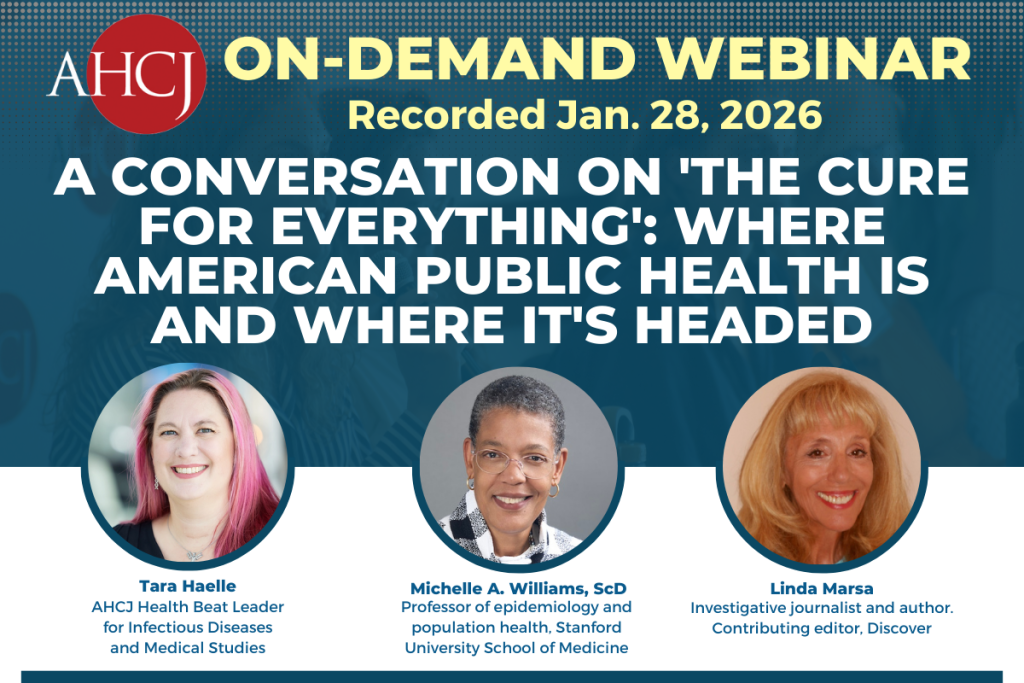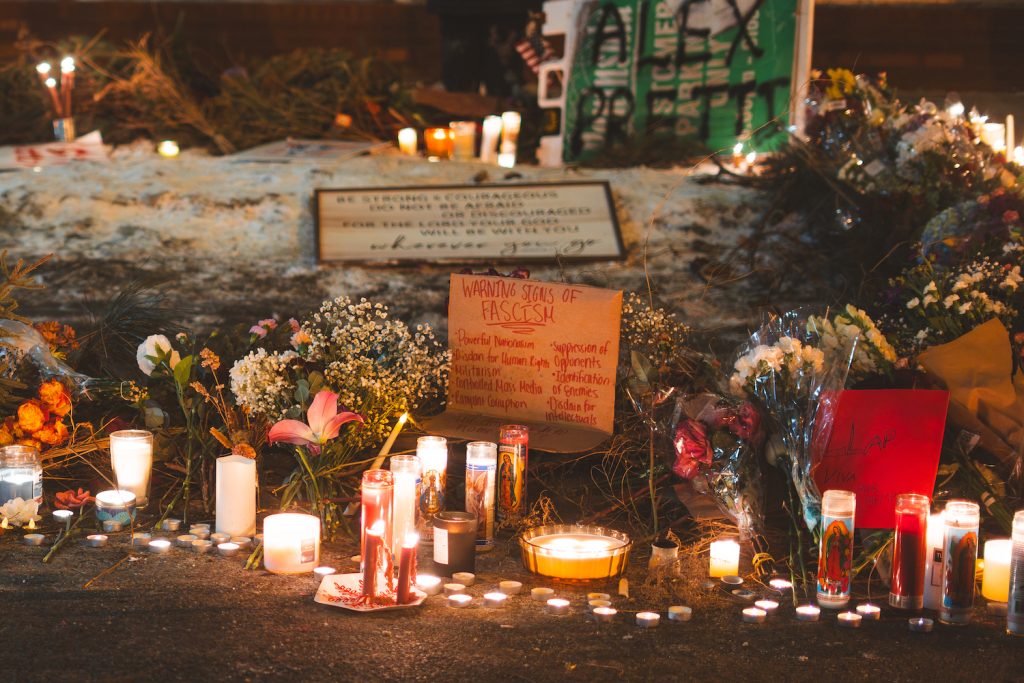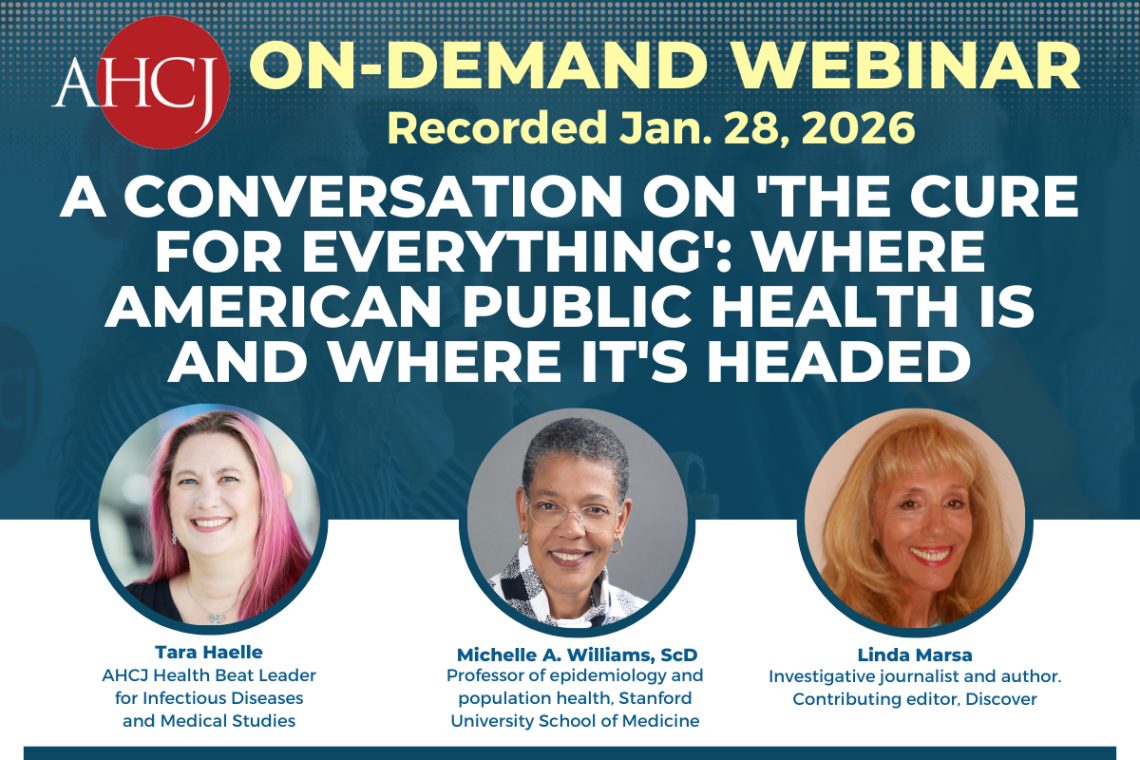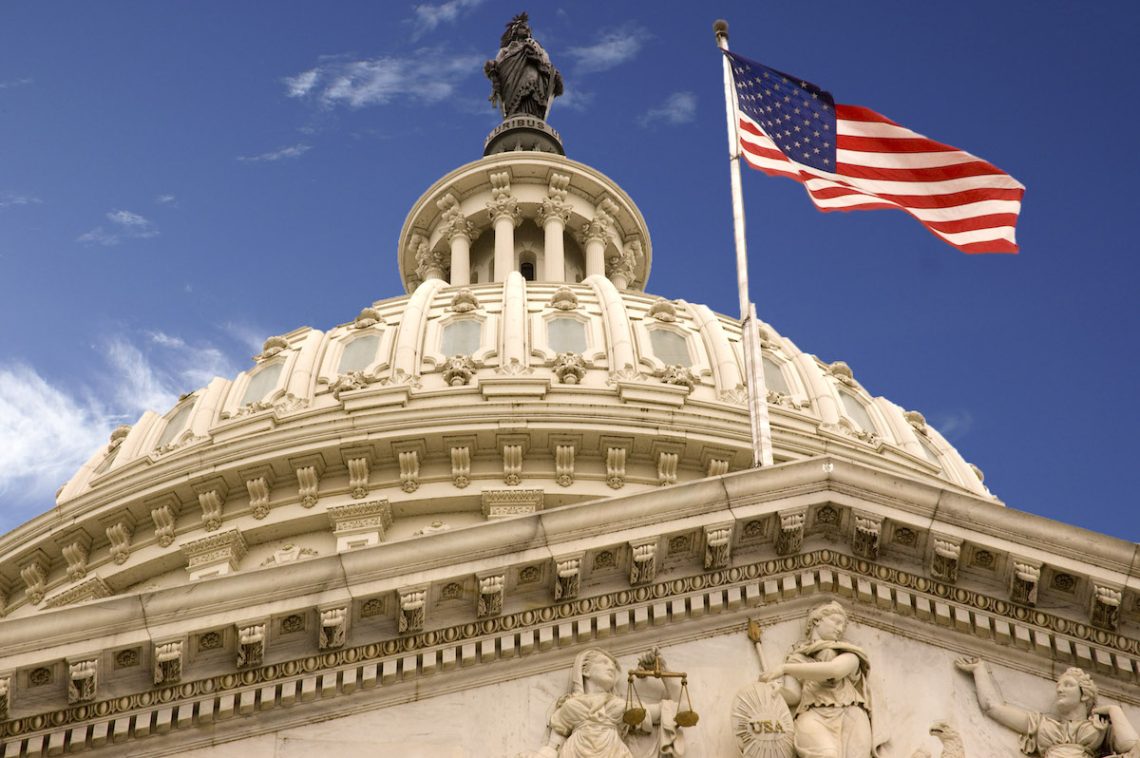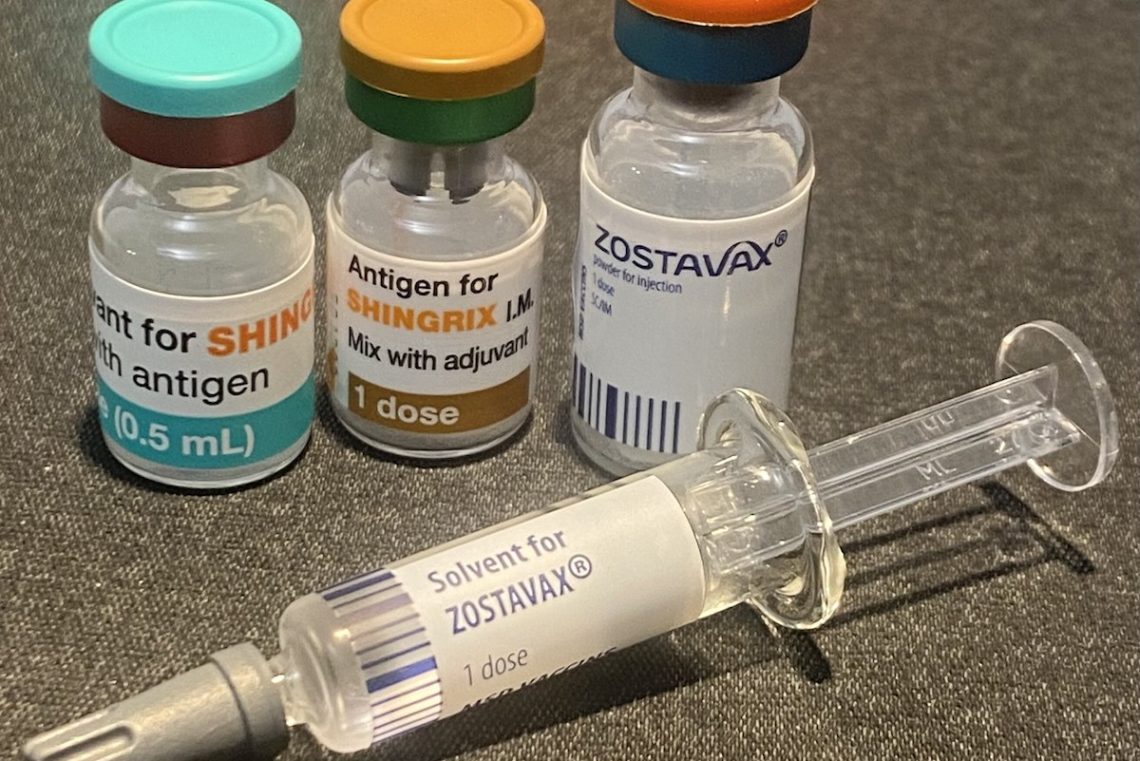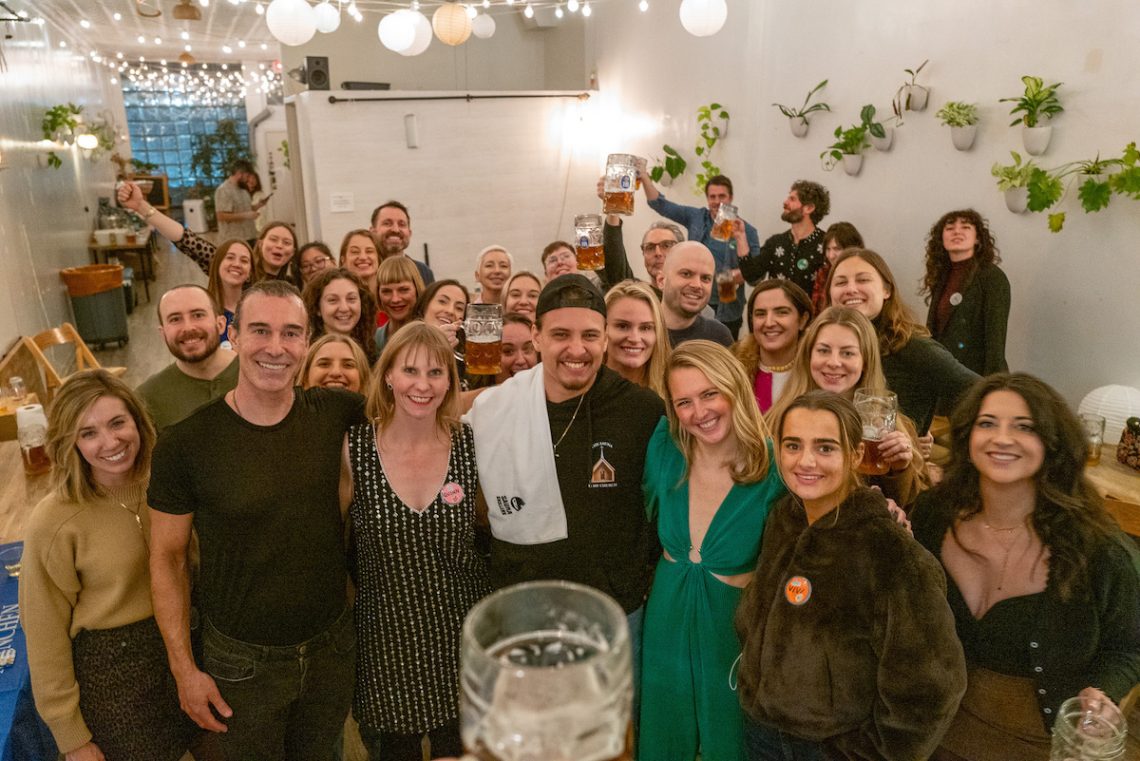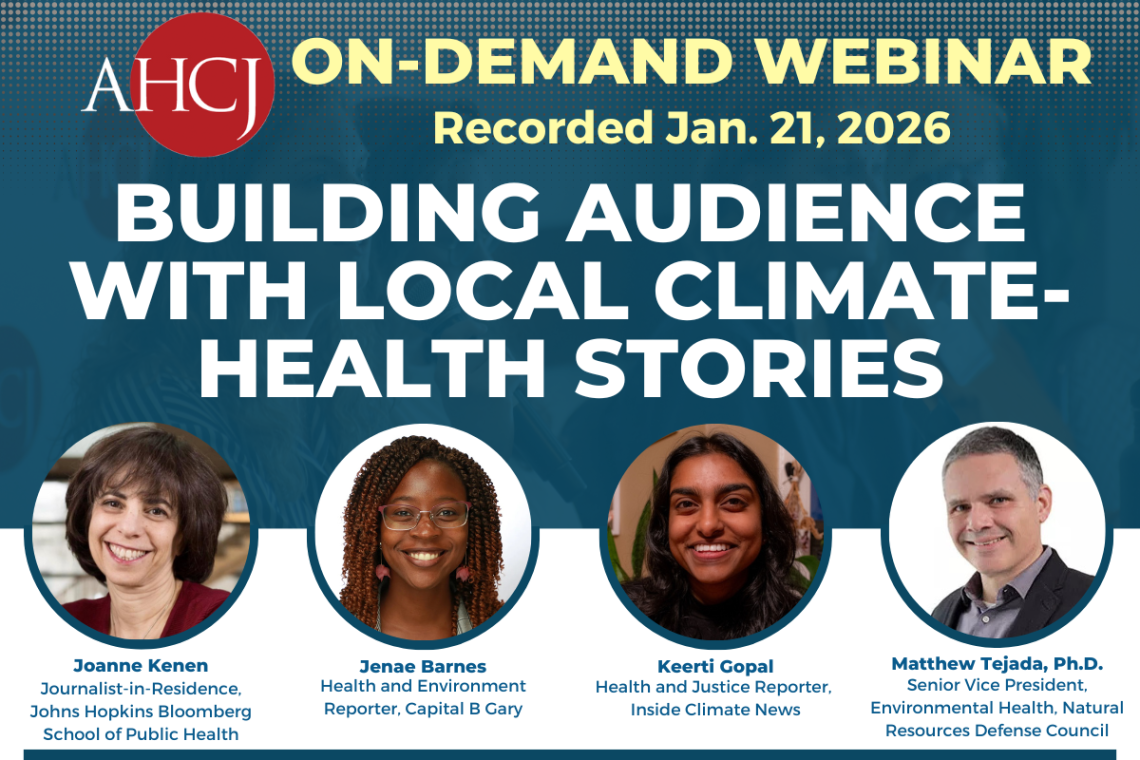Health Beat
Monitoring the Pulse of Health Care Journalism
Ad
-
How to care for your mental health over the next few years
A second Trump administration will likely make health reporters’ jobs more chaotic (again). Here’s how journalists — and a psychologist…
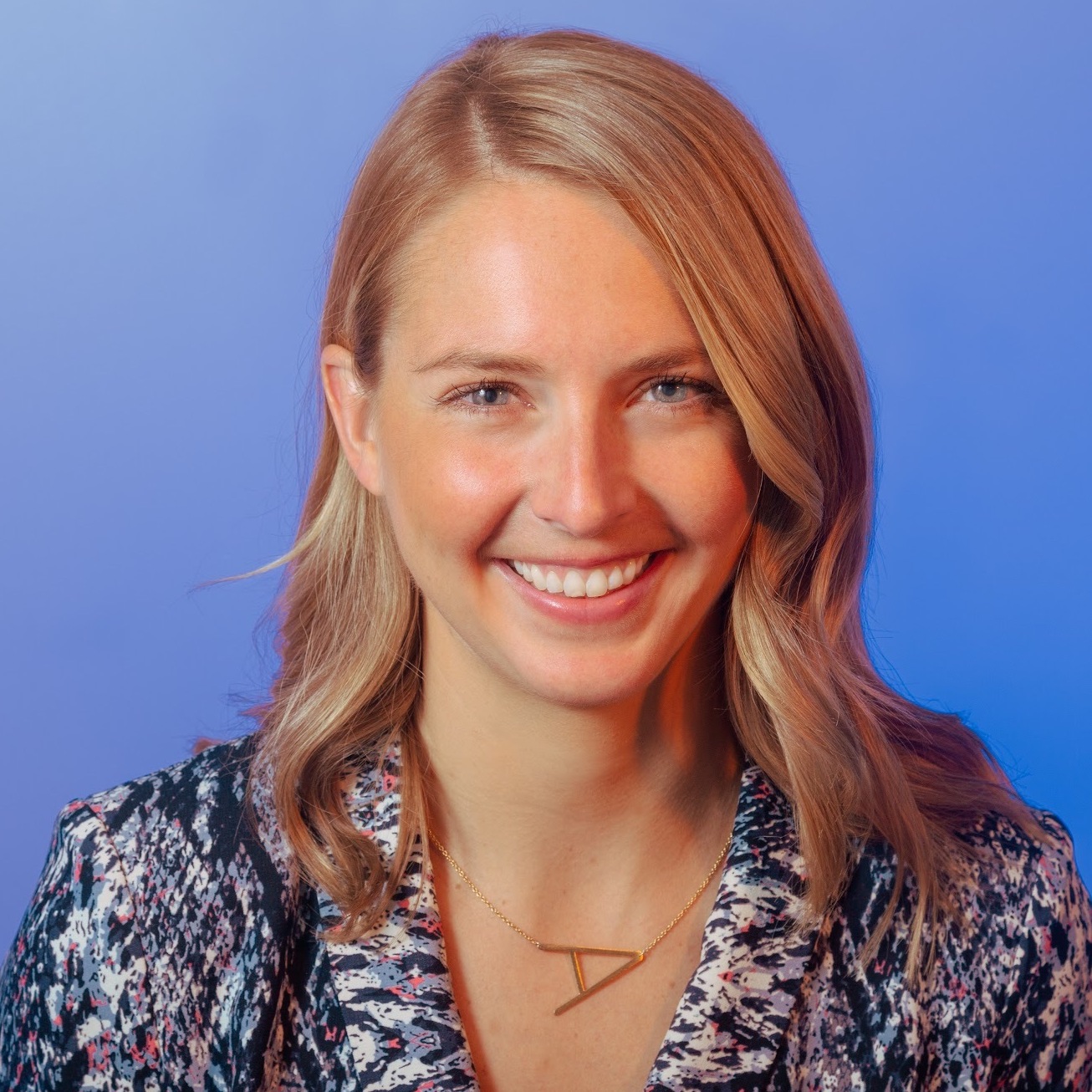
-
How to advocate for yourself as a freelance journalist
During January’s Lunch and Learn, freelancers swapped tips on advocating for better pay, clearer boundaries and more time.

-
A conversation on ‘The Cure for Everything’: Where American public health is and where it’s headed
In this webinar, Michelle Williams will share lessons from her book “The Cure for Everything” that could inspire story ideas…

-
Stories to cover as Americans seek affordable health insurance
Following the expiration of Affordable Care Act tax credits on Dec. 31, many Americans are struggling to pay for health…

-
AHCJ stands with Minneapolis
A message of support from the AHCJ Board President and Executive Director ahead of the Health Journalism 2026 conference May…

-
Shingles vaccine may slow biological aging, new study suggests
New research shows a link between slower biological aging among people who received the shingles vaccine compared to those who…

-
Why children’s exposure to intimate partner violence needs more coverage
Intimate partner violence is a major public health crisis in the U.S. that needs more coverage — especially its impact on…

-
3 fun and creative ways freelancers can celebrate their work
Performance reviews are all well and good, but whacky parties, cheeky awards and short getaways are a lot more fun.

-
Utah becomes first state to allow AI prescription refills: What to know
Utah is now the first state to allow residents to allow AI prescription refills — without needing to speak with…

-
Building audience with local climate-health stories
In this webinar, we discuss how to find compelling, community-driven stories at the intersection of climate change and public health.
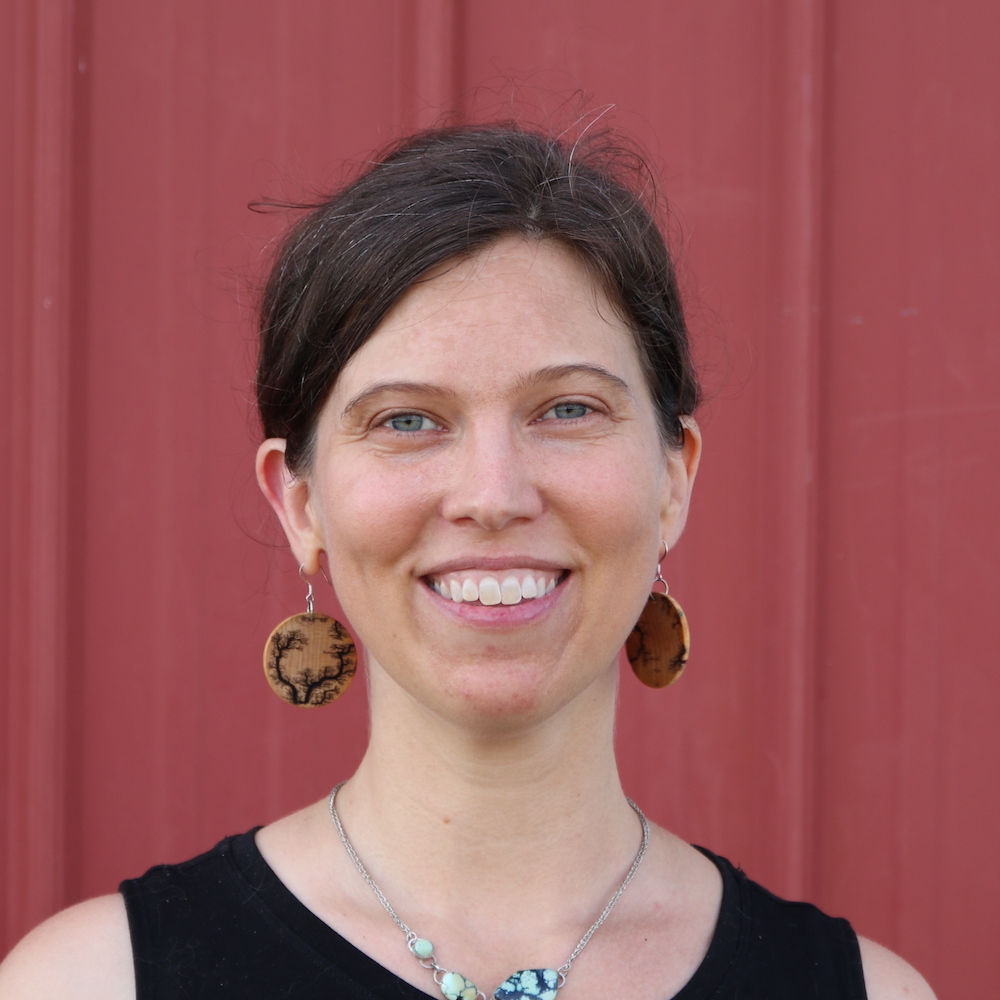
-
How journalists can stay safe covering protests
Press freedom expert Joel Simon shares why protests have become more dangerous for journalists, and what we can do about…

Featured Resources
Work the Health Beat.
Get exclusive news and training opportunities from AHCJ in your inbox once a week.

